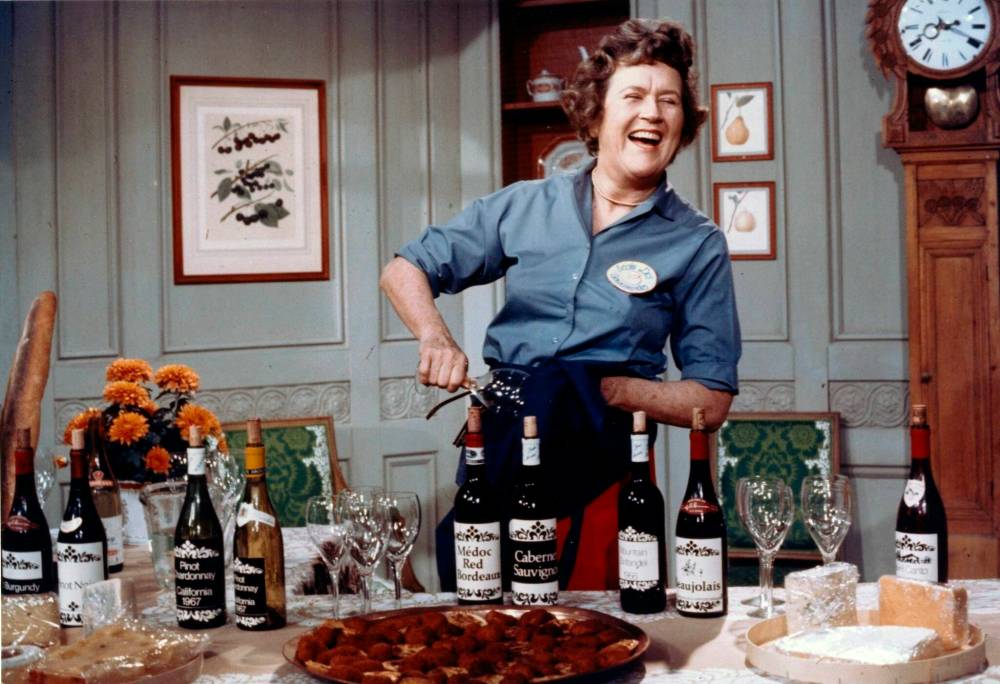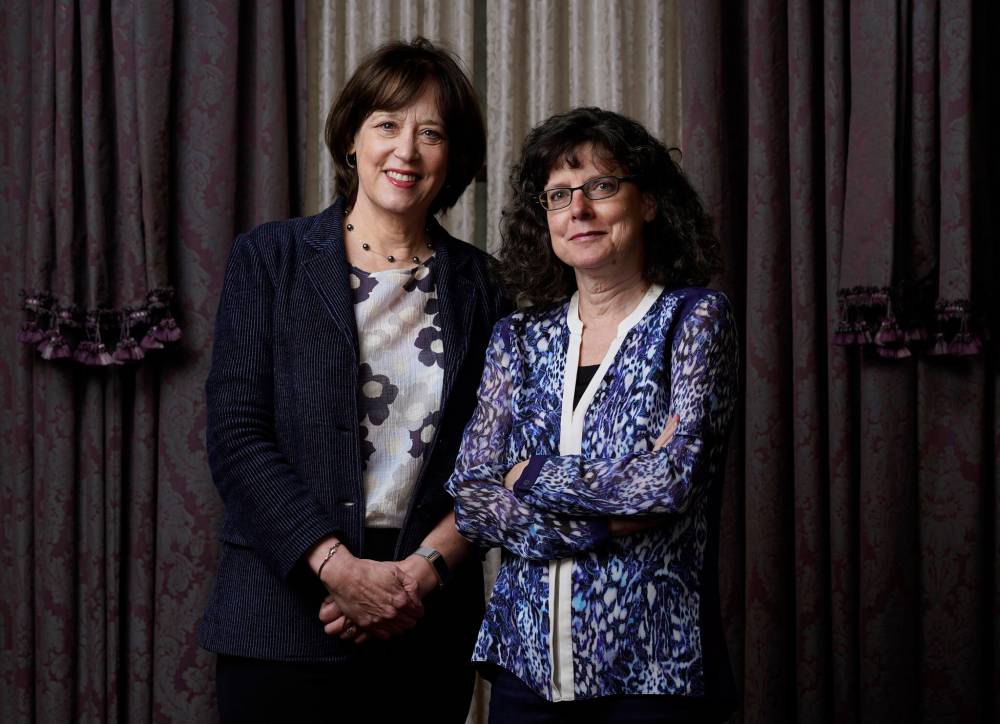Doc cooks up tasteful portrait of unlikely culinary icon
Film an exuberant chronicle of Julia Child’s contribution to American cuisine
Advertisement
Read this article for free:
or
Already have an account? Log in here »
To continue reading, please subscribe:
Monthly Digital Subscription
$0 for the first 4 weeks*
- Enjoy unlimited reading on winnipegfreepress.com
- Read the E-Edition, our digital replica newspaper
- Access News Break, our award-winning app
- Play interactive puzzles
*No charge for 4 weeks then price increases to the regular rate of $19.00 plus GST every four weeks. Offer available to new and qualified returning subscribers only. Cancel any time.
Monthly Digital Subscription
$4.75/week*
- Enjoy unlimited reading on winnipegfreepress.com
- Read the E-Edition, our digital replica newspaper
- Access News Break, our award-winning app
- Play interactive puzzles
*Billed as $19 plus GST every four weeks. Cancel any time.
To continue reading, please subscribe:
Add Free Press access to your Brandon Sun subscription for only an additional
$1 for the first 4 weeks*
*Your next subscription payment will increase by $1.00 and you will be charged $16.99 plus GST for four weeks. After four weeks, your payment will increase to $23.99 plus GST every four weeks.
Read unlimited articles for free today:
or
Already have an account? Log in here »
Hey there, time traveller!
This article was published 10/12/2021 (1429 days ago), so information in it may no longer be current.
This charming, cheering and deeply affectionate Julia Child documentary is as enthusiastic as its subject, and that’s saying something.
Filmmakers Betsy West and Julia Cohen, who also celebrated Ruth Bader Ginsburg in 2018’s RBG, employ a brisk mix of archival footage, family photographs, talking-head interviews and up-tempo music to chronicle the life and work of the woman who helped change the way North Americans cooked and ate.
Drawing heavily on book sources, including My Life in France by Julia Child and Alex Prud’homme, The French Chef in America by Alex Prud’homme, and Dearie: The Remarkable Life of Julia Child by Bob Spitz, the doc doesn’t really break cinematic ground. But with its straight-up chronology and crowd-pleasing mood, it will appeal to Julia fans. (For viewers of the 2009 dramedy Julie & Julia who only liked the Meryl Streep parts, this is the film for you.)
The doc starts with Julia’s childhood in a wealthy and conservative enclave in Pasadena, Calif., where she was expected to marry well and then while away her time at the country club. Instead, she signed up for war work, doing clerical duties for the OSS, the precursor to the CIA. (She was “too tall,” she felt, at six foot, three inches, to be a spy.)
There she met her future husband, Paul Child. Despite inauspicious beginnings — she thought his moustache “unbecoming;” he thought she giggled too much — this became a fulfilling lifelong love affair, often marked by wonderful food.
After Paul’s diplomatic posting to France, Julia had her famous meeting with a dish of sole meuniere, from which there was no going back. She became the only woman in a Cordon Bleu cooking course, “a masculine club invaded by a dame,” as Paul wrote in a letter home.
Julia later began 12 years of meticulous work on her ground-breaking cookbook, Mastering the Art of French Cooking, with co-contributors Louisette Bertholle and Simone Beck, which would help bring that Gallic attitude to food to the United State. As contrast, West and Cohen offer up a queasy-looking parade of postwar American food, including an assortment of jellied salads and spam with pineapple and maraschino cherries.
Julia championed French cooking — including a mysterious recipe mentioned only in passing that requires six-and-a-half sticks of butter (!) — but she was also determined that home cooks would be able to make these dishes with ingredients acquired at an average American supermarket.

That democratic approach extended to her first TV series, which helped educational public television find a much larger audience. While meticulously planned, the show was live-to-tape, which meant that Julia’s occasional flubs and fails were broadcast to the audience, along with her trilling assurances that mistakes were nothing to be afraid of.
That a crucial lesson from a woman who, into her 90s, was always learning and endlessly curious, her ongoing engagement with the world rooted in her passionate love of good food.
Cohen and West match that love with some really delicious food cinematography. Don’t be surprised if you head home and start thinking about making boeuf bourguignon.
Just ensure the beef is seared and not steamed! Don’t crowd the pan! And “bon appetit,” as Julia herself would say.
alison.gillmor@freepress.mb.ca


Studying at the University of Winnipeg and later Toronto’s York University, Alison Gillmor planned to become an art historian. She ended up catching the journalism bug when she started as visual arts reviewer at the Winnipeg Free Press in 1992.
Our newsroom depends on a growing audience of readers to power our journalism. If you are not a paid reader, please consider becoming a subscriber.
Our newsroom depends on its audience of readers to power our journalism. Thank you for your support.


